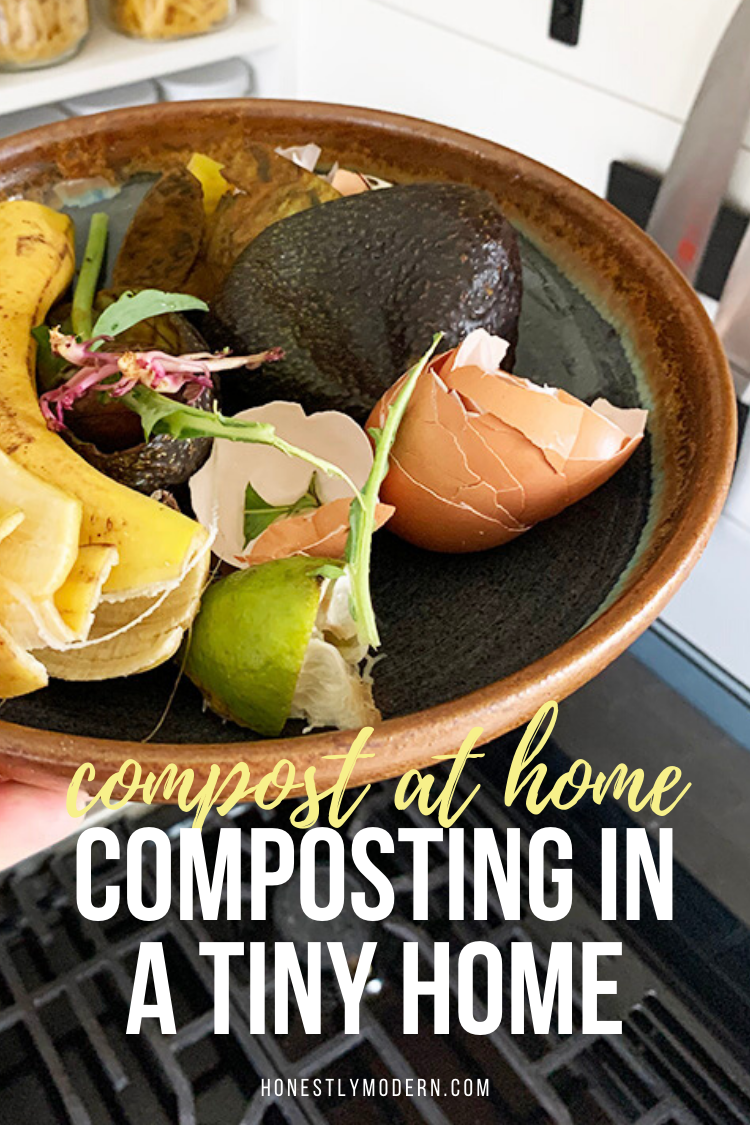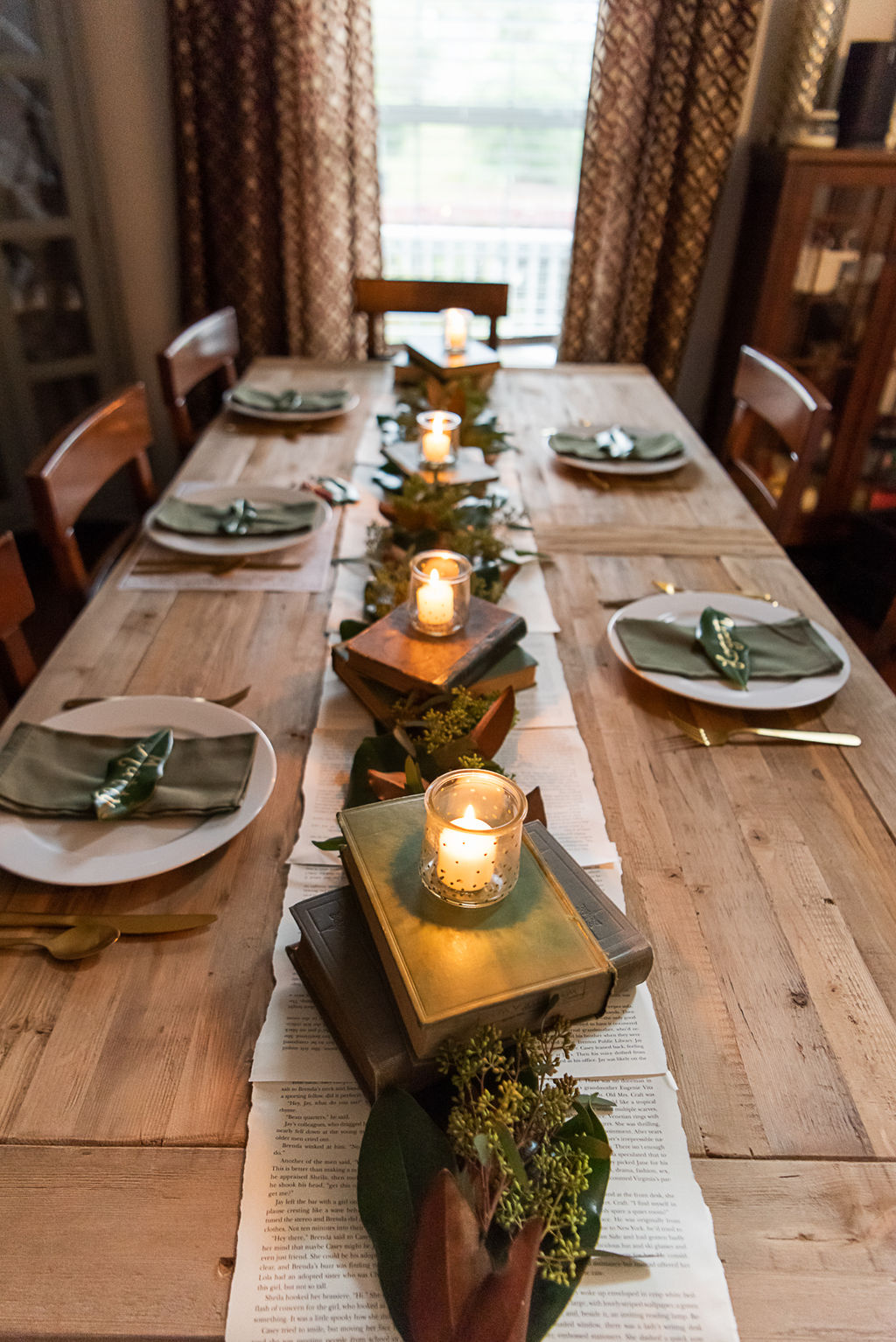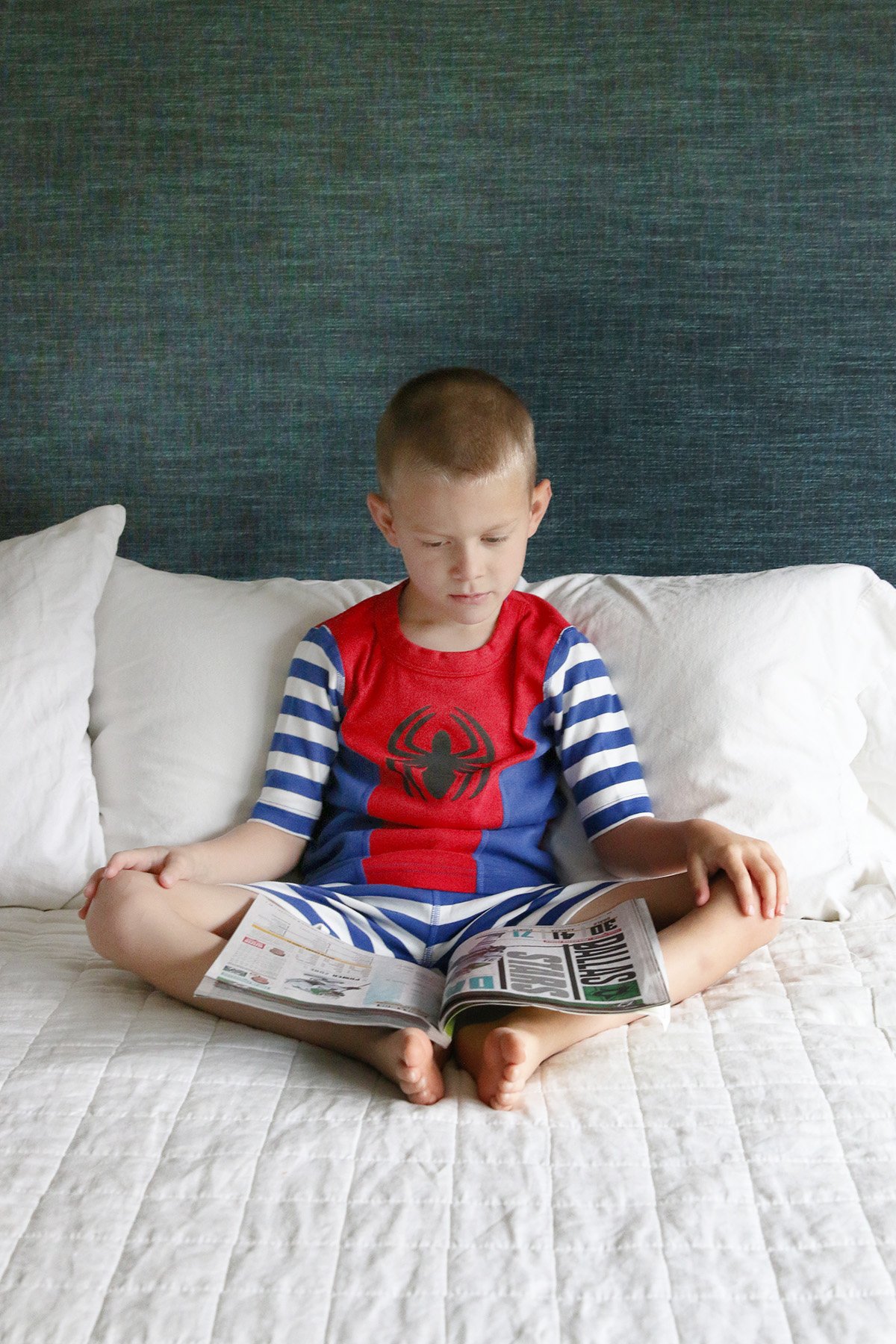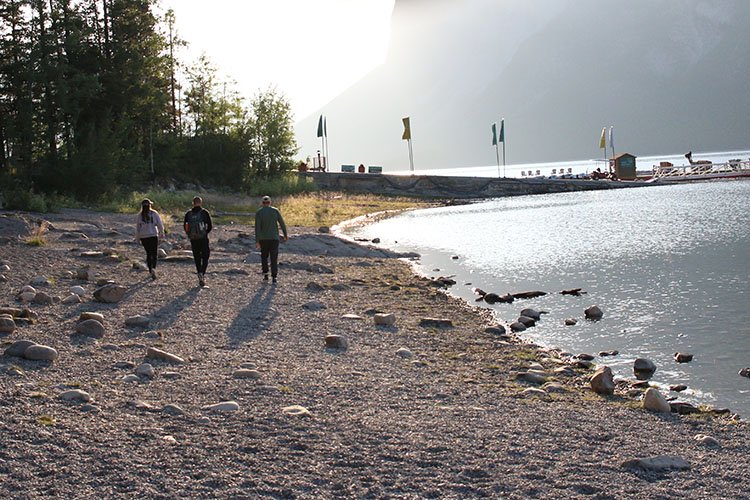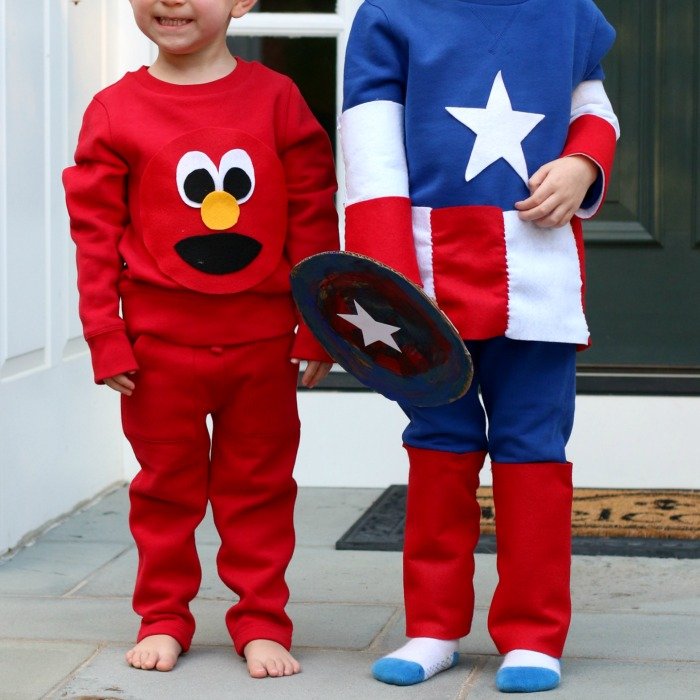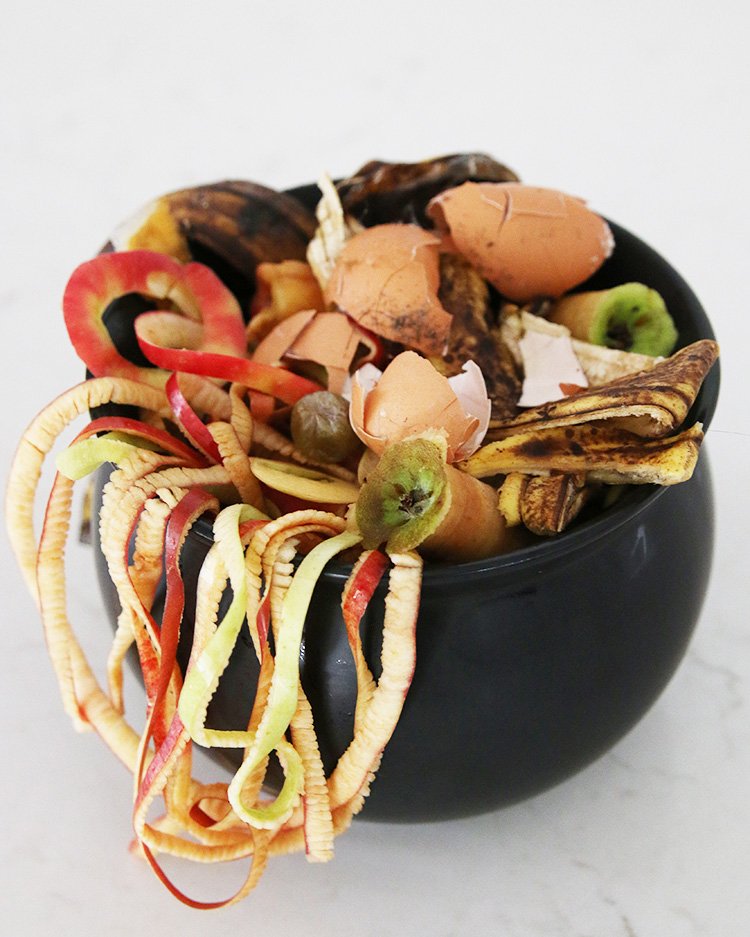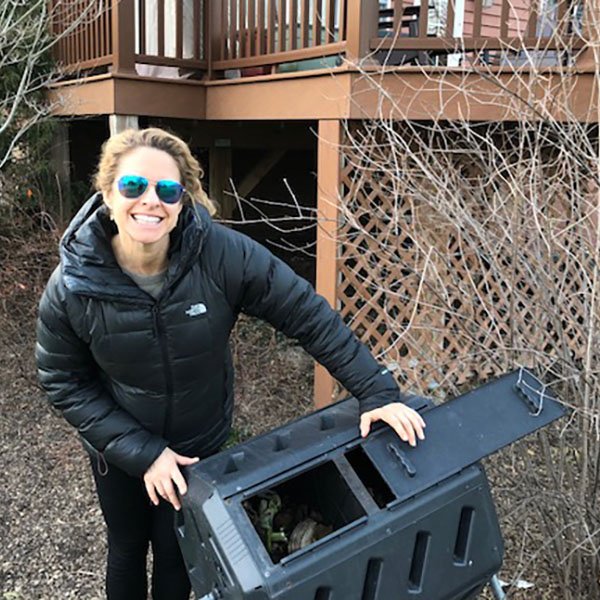How To Compost At Home | Composting In A Tiny Home
Do you compost at home? If you think you don’t have enough space to compost at home, this interview with a couple who composts in their tiny home might convince you otherwise!
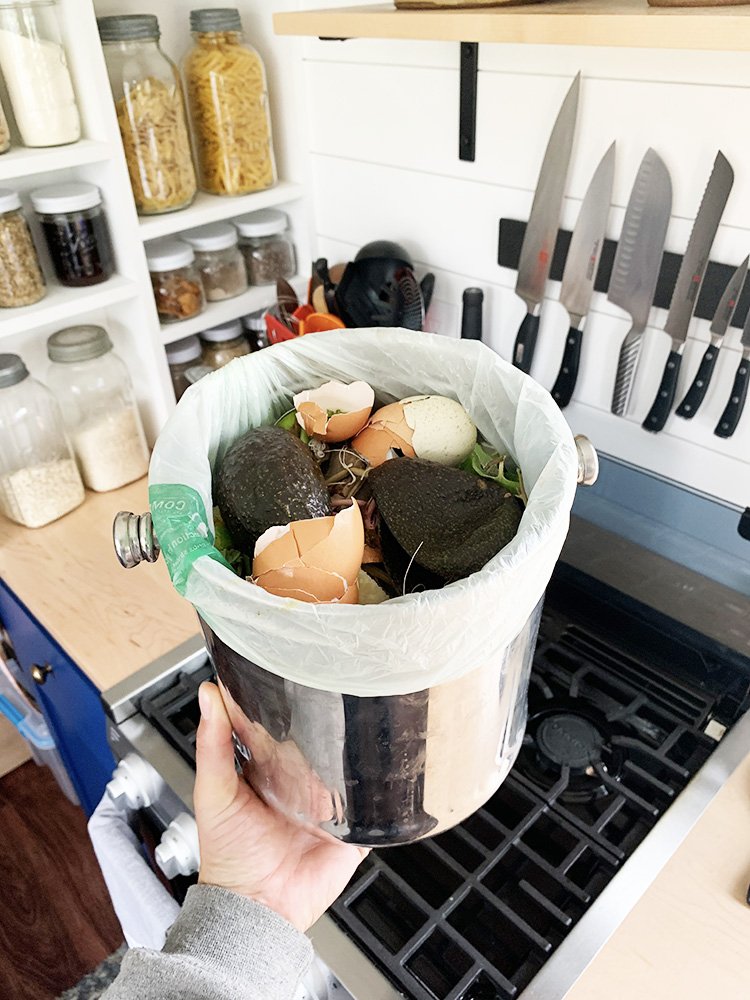
The Compost Chronicles series highlights families in various circumstances who have all found a way to compost at home that works for their lifestyle. Hopefully, you can be inspired to give it a go and help our planet become a little healthier.
Did you know that composting can transform your trash into new life? And that new life, in the form of microbes, fungi, earthworms, and more, provides the foundation for much of all other healthy life on Earth?
Composting is a great way to create healthy soil to support people and our planet. Healthy soil is also a magical carbon sink that absorbs carbon from our atmosphere and helps cool the planet. While dead dirt has few living organisms, a teaspoon of healthy soil has more living organisms in it than the entire population of humans on Planet Earth!
We need everyone to learn how to compost at home and make it a part of everyday life.
Don’t think you can compost? We’ve got a whole set of resources on Everything To Know About How To Compost At Home, including more Compost Chronicles interviews. All of this information about how to compost at home will hopefully prove that just about anyone can make space and find a system to turn their food scraps into nutrient-rich compost to enrich our soil, feed our food cycle, and limit the food waste that ends up in landfills.
Today, I’m sharing another edition of Bring Your Trash To Life that will hopefully debunk the myth that you need a lot of space in your home to compost.
Sophie and her husband live in a tiny home that they designed and built themselves. As they created their dream tiny home, they made sure to incorporate a space for composting, even if it was small. I’ll let Sophie tell you more about how they compost at home in a tiny home!
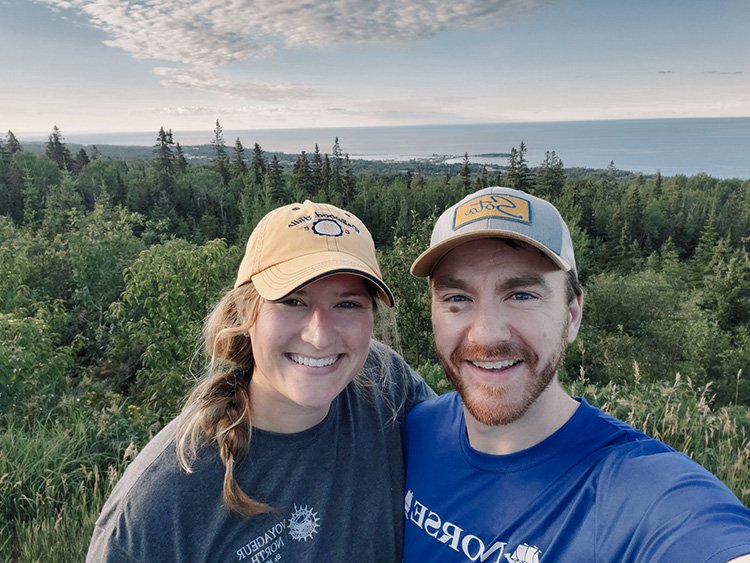
Can you tell us a bit about yourself, where you live, your family, etc.. the Sophie 101?
I’m Sophie Jungbauer, a proud Minnesota native born and raised in Saint Paul. I met my husband Henry at Luther College while pursuing my bachelor’s degree in Environmental Studies and Anthropology.
We were both track athletes and now we spend most of our free time exploring the great outdoors. We designed and built our tiny house on wheels and are currently living near Duluth, Minnesota with our Lab-Husky pup. We are passionate about sustainability and strive to live minimally.
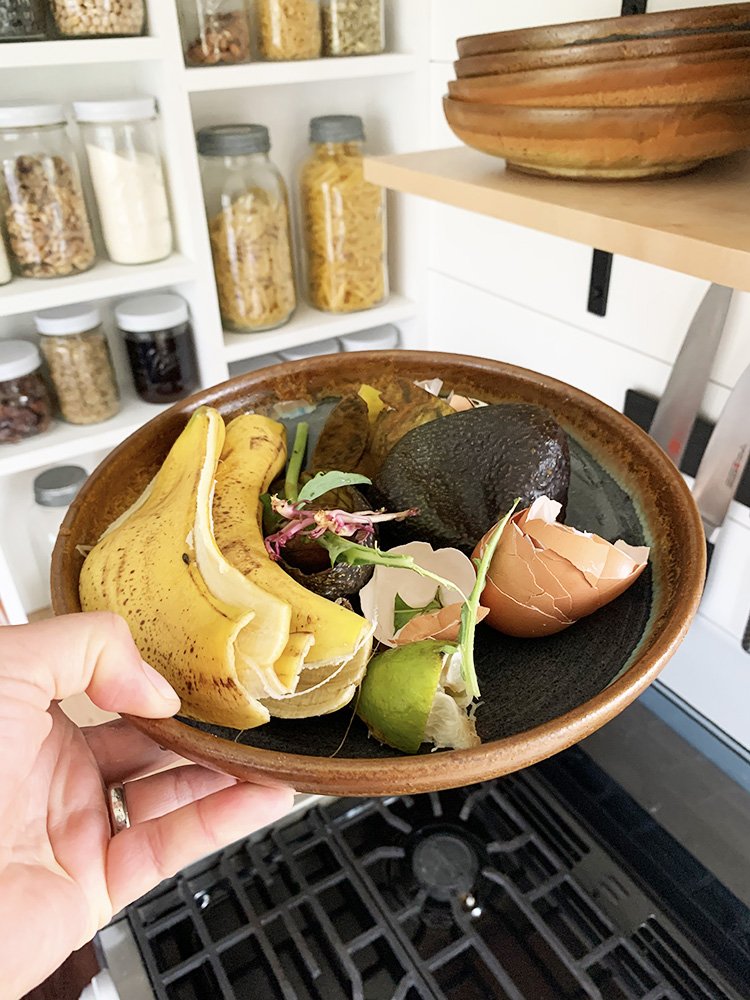
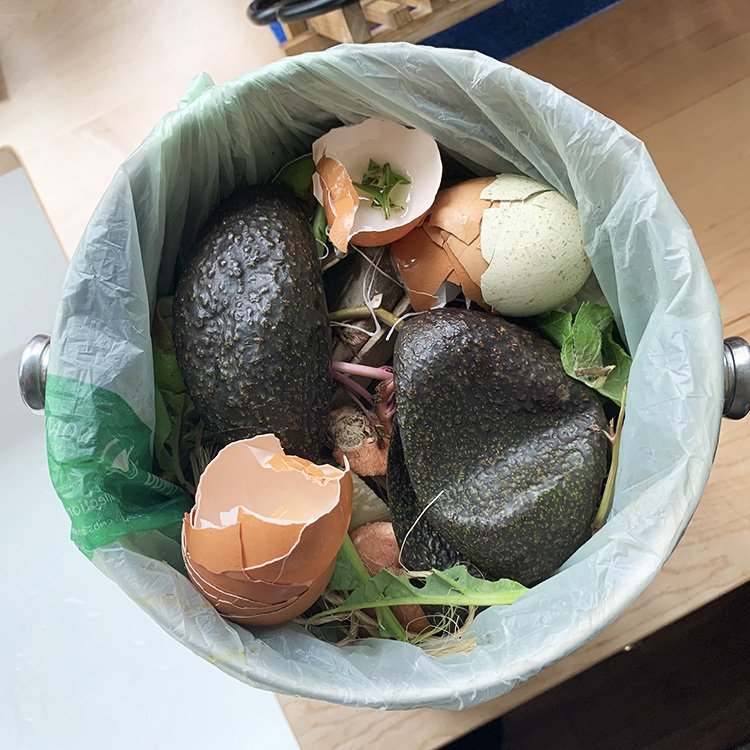
Tell us a little bit about why you decided to start composting?
My dad came from a farming family and always saw the value in composting. Although my parents live in the city, they have a very large backyard and my dad grows an impressive vegetable garden every summer.
For as long as I can remember, my family composted. There is a large compost pile out back, and we’d reuse an old gallon ice cream bucket to collect food scraps. Every spring before planting, my dad brought compost over to his garden. I remember him telling us with pride how many wheelbarrows full of compost he had incorporated into the garden.
I also know there are many environmental reasons why composting is important as it helps reduce food waste sent to landfills and related methane, a greenhouse gas, that is emitted from food waste decomposing in landfills without oxygen.
What method or methods of composting do you use or have you used?
While at college, our cafeteria collected food scraps to add to the compost pile that would eventually be used in the school gardens. After college, my husband and I lived in apartments in Saint Paul where we collected our own food scraps in a stainless steel pail. We dropped it off at organic waste sites set up by the county, typically on a weekly basis.
We also lived in Minneapolis for a short stint where we had a weekly curbside pickup for residents. Now we do a combination of backyard composting and industrial composting that we drop off. We also have a composting toilet but that is a whole other blog post 😉
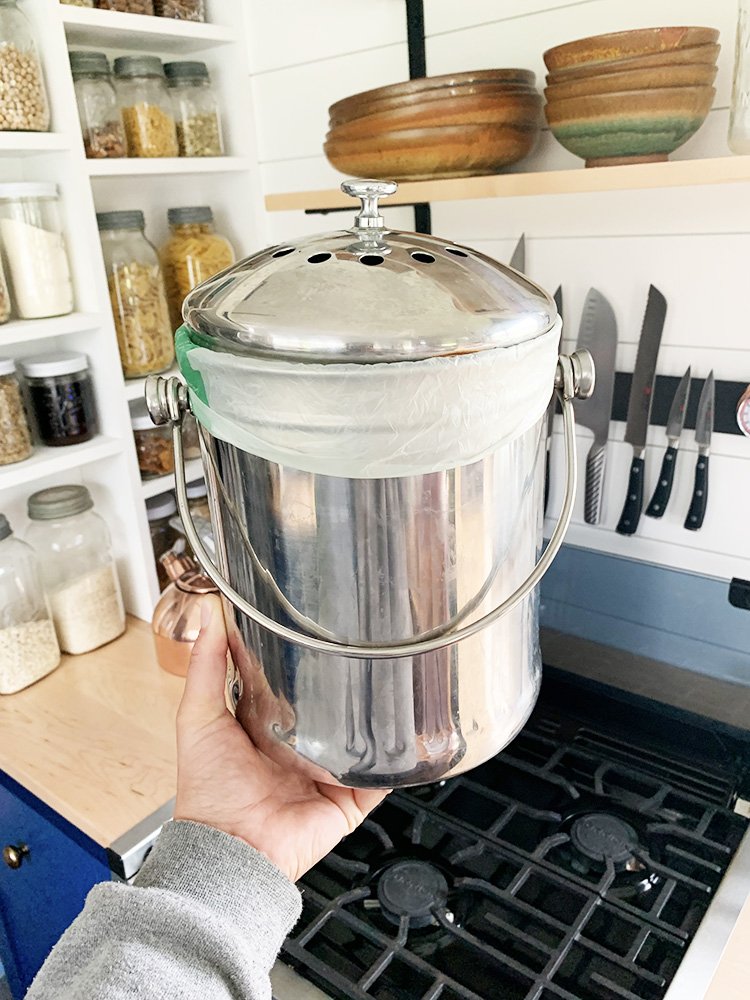
How do you store the scraps until they are taken to your compost pile?
Living in a tiny house definitely comes with some storage challenges. However, we knew that we would compost, so we planned space for our compost receptacle.
We keep a stainless steel container that has a lid with charcoal filters and BPI certified compostable liner under the sink for industrial composting (items like silk dental floss, PLA #7 plant plastic, the occasional paper towel, meat, and bones). In the summer we generally separate out the backyard compost. But in the winter, we add those food scraps in with the industrial compost.
I like keeping a bowl out on the counter for compostable food scraps while cooking. Then we either bring the food scraps to the compost pile after cooking or add to the bin under the sink after all the meal prep is done. I don’t want to keep taking the compost bin lid off and on.
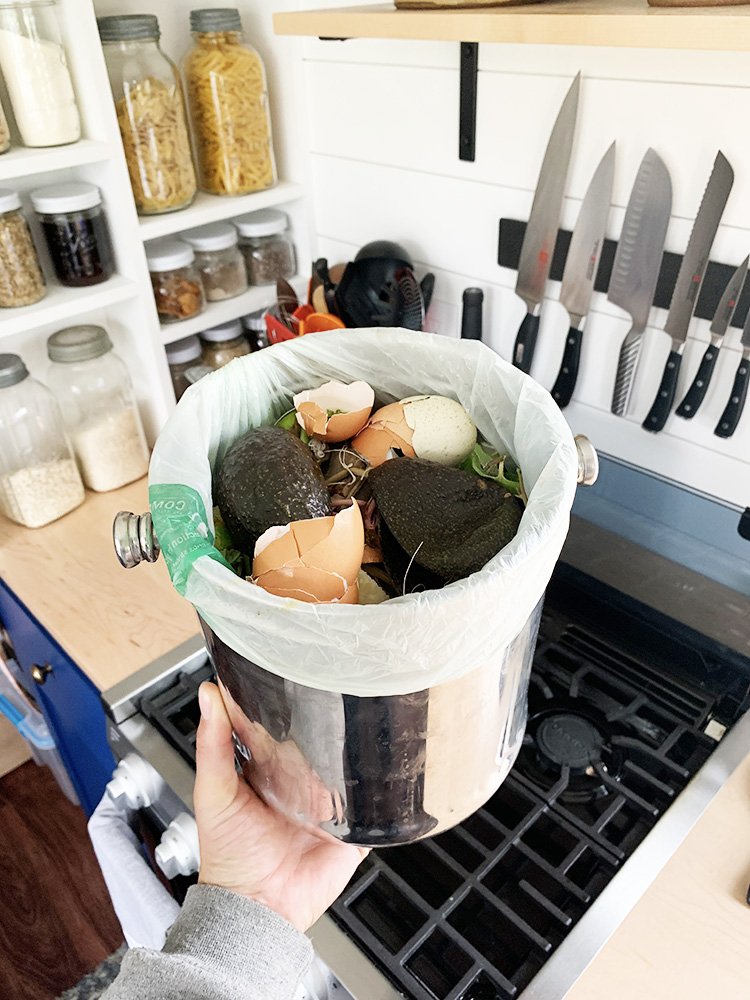
Have you had any issues with animals or pests getting into your compost pile?
We are out in the country, so our compost pile is enclosed with chicken wire to keep out the deer. On a few occasions, I’ve set a compost bag outside to drop off later and forgotten about it and our puppy has gotten into it…. whoops.
Do you have any special tools, containers, or products that help make composting easier or more accessible for you?
We really like the stainless steel receptacle we’ve been using for years from RSVP International. The lid has two replaceable charcoal filters integrated in it, but there are lots of similar styles out there.
As I mentioned earlier, my parents have always used a gallon ice cream bucket which works just fine. But we prefer having our bucket vented and sized to fit BPI compost bags perfectly. In the summer, it is easy enough to keep a large bowl out on the counter and empty into the backyard compost pile regularly.
If I were to do it again, I might consider getting a larger bin, but then we run the risk of letting it get really stinky if we aren’t taking it out as often.
Do you have any other supplies that you store until you need to add them to your compost pile?
We add our scraps to our neighbors’ compost pile. They add plenty of dry grass clippings for brown materials, so there is no need for us to store any excess materials.
How does your family feel about composting?
I grew up in a household that composted, and Henry did not. Just like anything else, it takes time and repetition to adjust to a new routine. Once we had an easy system in place, it did not take Henry long to catch on. I am perpetually the friend who offers to bring compostable items (like pizza boxes) to drop-off sites after a gathering and will bring compost home from my in-laws.
Have you experienced any benefits from composting, especially ones that might have surprised you?
I know one benefit is that composting food scraps keeps our trash smelling better for longer! Being able to use the composted material for vegetable gardening as opposed to purchasing it is obviously a great benefit too!
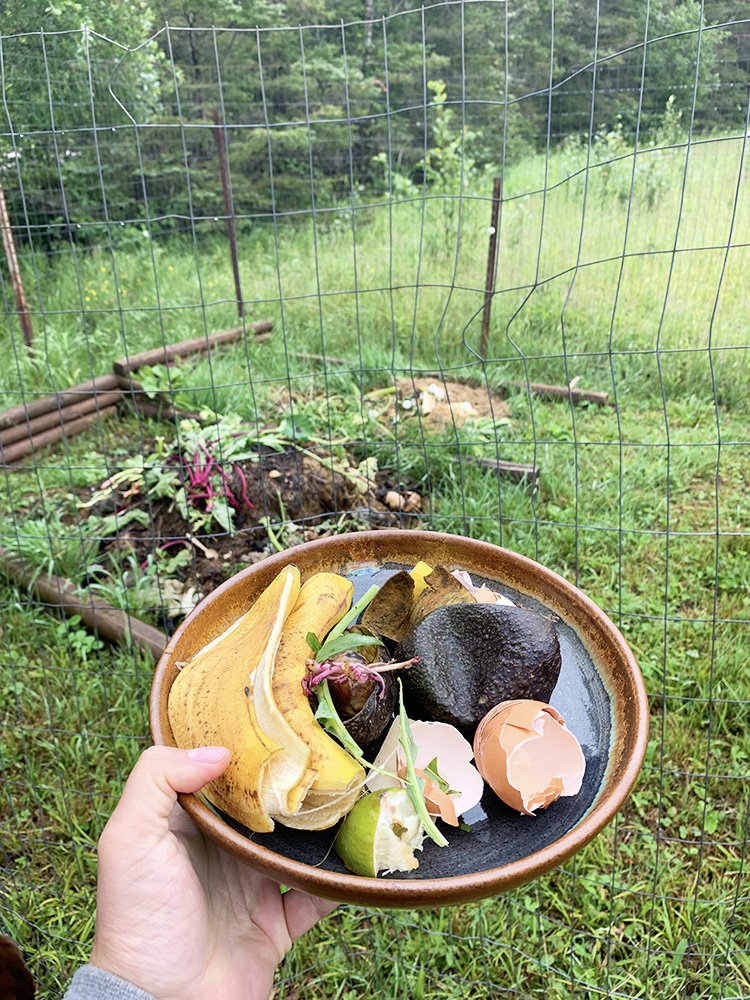
Anything else you’d like to share with readers about your composting practices, especially to help beginners gain confidence that they too can compost?
Don’t overcomplicate it! My biggest tip for anyone just getting started is to print a list of what is compostable in your area (for industrial composting) and put it on your fridge where you can see it.
Make your compost receptacle very convenient to use — maybe that’s on your countertop — and empty often. We don’t have room in our small freezer, but I have friends who freeze their compost to eliminate odors and reduce the number of times they need to drop it off.
If you want to go the extra mile…
If you drop off your compost, try to limit making extra trips by incorporating it with an errand you’re already making. We really try to reduce our waste in general, so we also try to make the best of our food scraps. We feed our dog carrot butts, broccoli stalks, and strawberry tops. You can also use those strawberry tops to infuse in water! Make “banana” plant fertilizer before you compost the peels, save veggie scraps to make your own veggie broth — the possibilities are endless!
Where else can we find you and learn more about what you’re up to?
I love sharing our low-waste, nontoxic tiny lifestyle on the ‘gram where you can find me @radtinyhome

